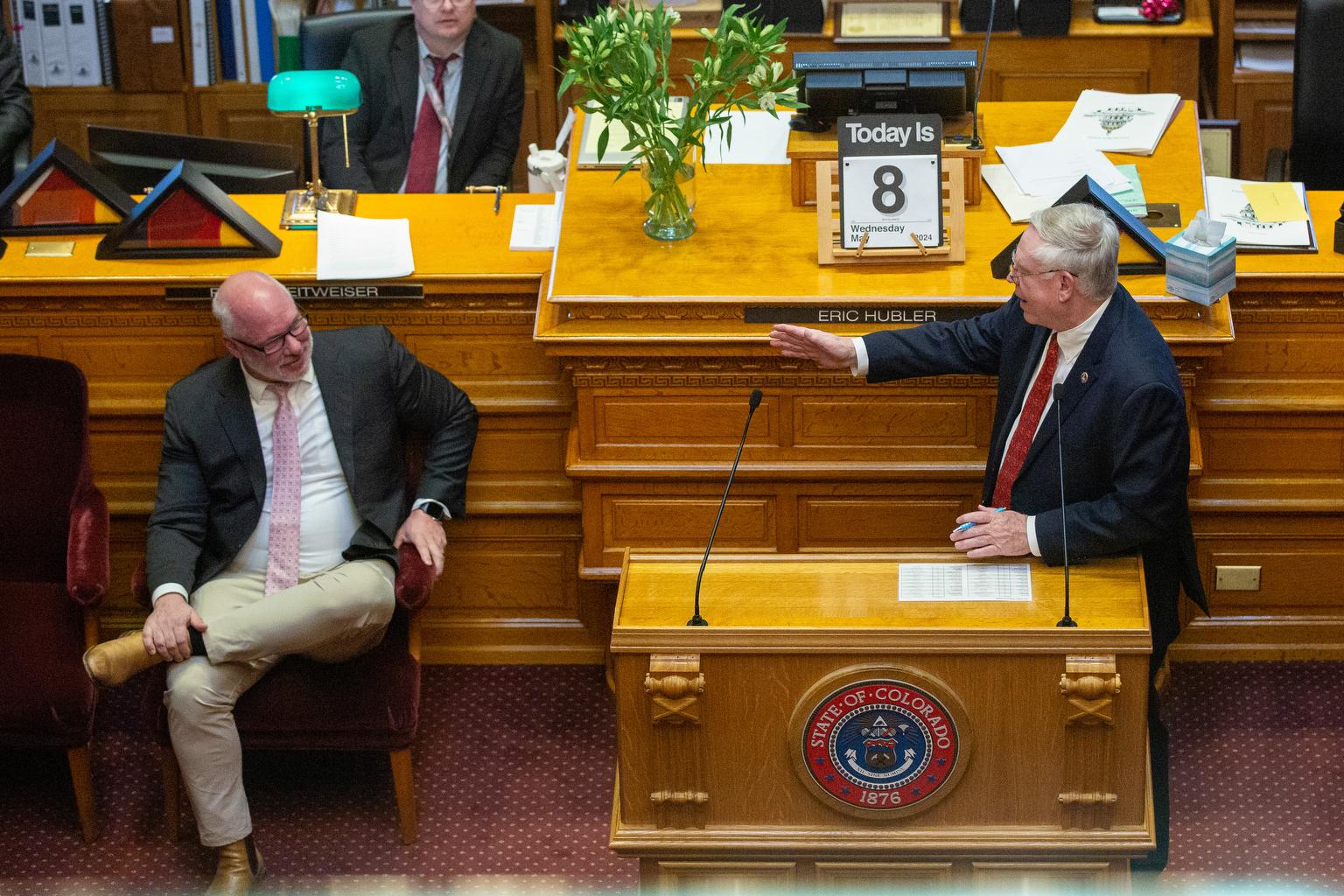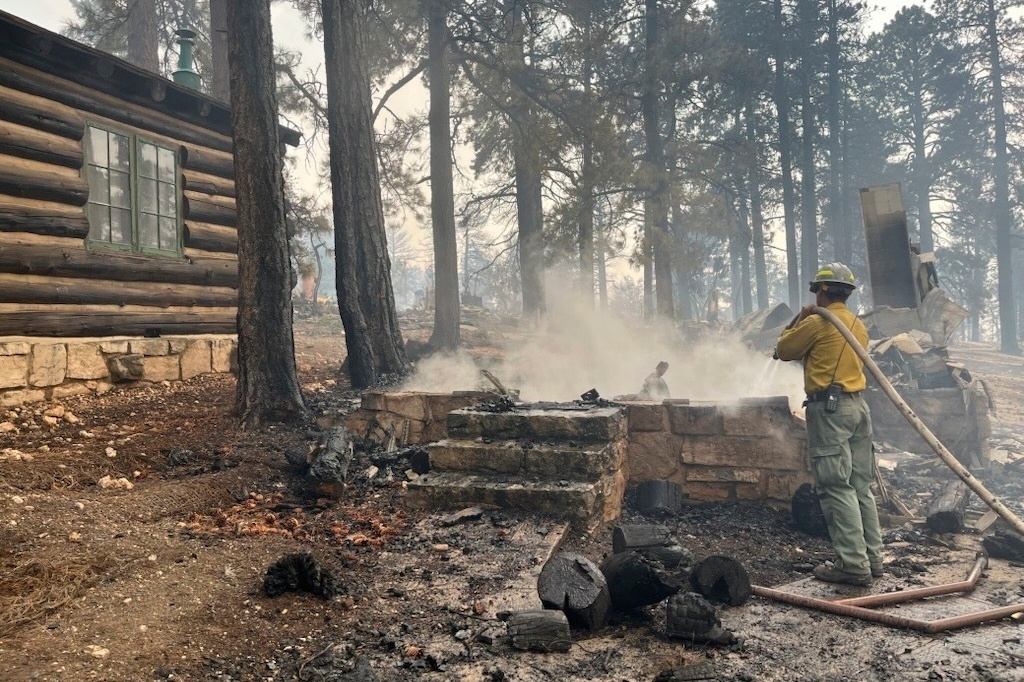
This November’s ballot is likely to be a doozy. Two initiatives have already qualified -- a property tax cap and constitutional protections for abortion. And many other groups are still gathering signatures for a wide range of initiatives. The ones that make it will join a docket already full of questions state lawmakers have referred to the ballot over the past two years (the state constitution limits what can go on the ballot in odd-year elections, so some of 2023’s referred measures had to wait for this year).
Here are all the measures referred by lawmakers:
A new excise tax on gun and ammunition sales
Democratic lawmakers are asking voters to impose a 6.5 percent excise tax on gun and ammunition sales. The tax would be paid by gun dealers, gun manufacturers, and ammunition vendors, who would likely add the cost on to their products. If approved, the money raised by the tax would go to behavioral health supports for veterans and youth, as well as school safety and gun violence prevention programs and services for victims of domestic violence and other violent crimes.
Allowing the state to keep all of the taxes it’s collected from sports betting
This legislative proposal, which had broad bipartisan support, asks voters to let Colorado keep and spend all of the tax revenue it collects from sports betting. When voters approved sports betting five years ago, the state estimated it would yield about $29 million in tax revenue each year. However, state economists now believe the 10 percent tax on betting operations will bring in significantly more than that in coming years. Under the Taxpayer’s Bill of Rights, the state must get voter permission to hold on to the additional money. Voters have seen similar questions on their ballots in recent years around tobacco and cannabis taxes. If the ballot measure passes, the additional money will be used for water conservation and protection projects.
Earlier deadlines to set the ballot
This constitutional amendment would move up by one week the deadlines for citizen initiatives to file their petition signatures. The same change would also apply to the declaration of intent judges and justices must file if they seek to run for retention. The proposal would also require nonpartisan research staff to publish the official text and titles of ballot measures a month earlier. The changes would give the Secretary of State and county clerks a bit more room to finalize the content of ballots before they have to be printed and sent to voters.
Because it is a constitutional amendment, this measure will take 55 percent of the vote to pass.
Removing the same-sex marriage ban from the state constitution
Colorado’s constitution still contains obsolete language that defines marriage as exclusively between a man and a woman. Even though the U.S. Supreme Court legalized same-sex marriage across the United States nine years ago, some advocates worry conservative justices could reconsider that precedent.. If it were overturned, Colorado’s marriage ban would go back into effect.
The initiative would strike a portion of the state constitution that reads: “Only a union of one man and one woman shall be valid or recognized as a marriage in this state.” The referred measure cleared the legislature with only one Democratic no vote, and eight Republicans joining the rest of the Democrats to back it. Because the measure takes something out of the constitution, instead of adding something in, it only needs a simple majority of voter support.
No bail for defendants in first degree murder cases
This constitutional amendment would make first degree murder suspects ineligible for bail, as long as prosecutors can show they have a strong enough case.
The desire for lawmakers in both parties to make this change stems from an unintended consequence of Colorado’s repeal of the death penalty in 2020. The state constitution says only people charged with ‘capital offenses’ can be denied bail and last year the Colorado Supreme Court ruled that without execution as a potential punishment, first degree murder no longer meets that criteria.
Colorado lawmakers refereed the proposal to the ballot by a wide margin; only four Democrats and one Republican voted against it. It will need 55 percent of the vote on Election Day to pass.
Setting up a judicial discipline board
Lawmakers want to change the rules for how Colorado handles misconduct within the judicial branch. This amendment would set up a new independent judicial discipline board, made up of judges, attorneys and members of the public. The board would conduct disciplinary hearings and hear appeals of informal remedial sanctions handed down by the Commission on Judicial Discipline.
This proposal follows extensive reporting by David Migoya of the Colorado Springs Gazette into a string of scandals in the judicial branch. Those revelations led lawmakers to push for a new way to handle judges accused of wrongdoing, independent of the state Supreme Court.
The referred constitutional measure cleared the legislature nearly unanimously, with only one no vote.
Allowing more disabled veterans to access a state property tax exemption
The constitutional amendment would expand the number of veterans living with a disability who qualify for a property tax exemption for a portion of the value of their primary residence. Currently, what’s known as the homestead exemption is limited to veterans with a service-related disability rated as 100 percent permanent.
If voters agree, eligibility would change to include veterans with a service-connected disability rated at 60 percent or more disabling, or 2 or more service-connected disabilities with at least one rated at 40 percent or more and a combined rating of 70% or more disabling. Non-partisan legislative staff estimate that change would cover around 3,400 more veteran homeowners..
The constitutional amendment cleared the state legislature unanimously.
CPR's Megan Verlee contributed to this report
Editor's note: The headline has been updated to reflect the correct number of measures put on the fall ballot by lawmakers.









